EU Insists On JCPOA As ‘Best Possible’ Framework For Iran

European Union foreign policy mediator Enrique Mora has reiterated that the 2015 nuclear deal still is the “best possible” framework to address Iran’s nuclear program.

European Union foreign policy mediator Enrique Mora has reiterated that the 2015 nuclear deal still is the “best possible” framework to address Iran’s nuclear program.
Mora, the deputy secretary general of the European External Action Service (EEAS), said in a tweet on Friday, “For the EU, the JCPOA is the best possible, if not the only, framework to address the legitimate non-proliferation concerns of the international community on the Iranian nuclear program."
"I had a serious and constructive meeting with Mora in Doha. We exchanged views and discussed a range of issues including negotiations on sanctions lifting," Iran’s deputy foreign minister and chief nuclear negotiator Ali Bagheri-Kani also said on Twitter, without elaborating.
The comments were made after meetings between Mora and Bagheri-Kani in Qatar on Wednesday in what was seen as an attempt to tackle nuclear talks suspended since last September.
Tehran did not sign on to a compromise draft agreement the EU had presented in mid-2022 to revive the JCPOA.
The United States began to say in October that it was not pursuing the JCPOA talks, but recently there have been a flurry of reports about Washington discussing a limited or interim unwritten deal with Islamic Republic, prompting Congressional opposition.
The deal is said to be based on partial financial incentives to Iran in return for not enriching uranium beyond 60 percent, but leaving Tehran with the potential means to develop nuclear weapons.
Bagheri Kani said last week that he had met his British, German and French counterparts in the United Arab Emirates to discuss "a range of issues and mutual concerns".
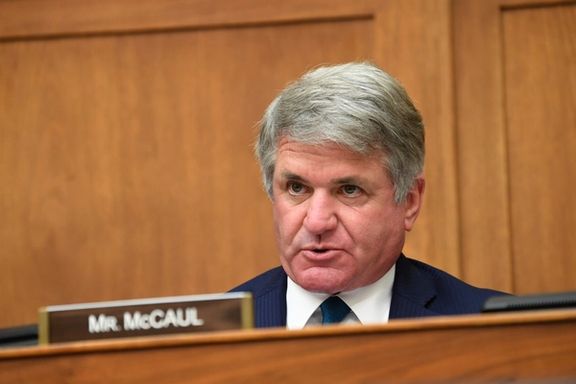
As many US lawmakers pressure the Biden administration on Iran, more than 200 prominent Iranian Americans have asked Congress to subpoena President Biden's envoy.
In a letter to Rep. Michael McCaul, Chairman of the House Foreign Affairs Committee, the Iranian American activists asked him to subpoena US special envoy for Iran Robert Malley over his history of confidential engagements with high-ranking Islamic Republic regime officials with ill will towards the US, as well as his intent on pursuing a policy of appeasement in favor of the biggest state sponsor of terrorism.
“Mr. Malley’s conduct is not acceptable to us as Americans of Iranian origin, especially while we witness people inside Iran being slaughtered by the regime in the streets and tortured in prisons by the Islamic Revolutionary Guard Corps, a US-designated terrorist organization,” reads the letter.
Imploring McCaul to subpoena Malley to provide a rundown of what has been agreed upon with the regime, they added, “We consider access to and knowledge of this information to be unalienable right of the American people and our community.”
Some prominent signatories were; Reza Behrouz, physician and Professor at the University of Texas ; Yass Alizadeh, Assistant Professor of Persian language and literature at New York University; Atlanta-based attorney Sasan Nematbakhsh; DC-based legal scholar Shima Bozorgi; Amin Sophiamehr, philosophy instructor from Indiana University and Sara Eshaghi of the California-based group, “Action for Iran.”
The letter came as House Republicans are laying the groundwork to subpoena top Biden administration officials over clandestine efforts to secure a deal with Iran that would free up billions of dollars for the regime.
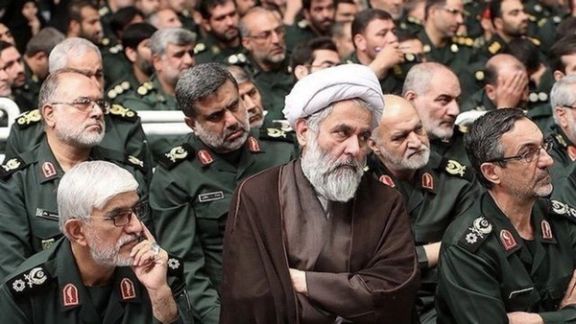
The former intelligence chief of Iran’s Revolutionary Guards says the US has sent messages to the regime to say it is not seeking a regime change in Iran.
Hossein Taeb said Thursday that the US sent the message through three neighboring countries of Iraq, Qatar and Oman, saying that it is not looking to overthrow the regime "so let's negotiate and reach an understanding.”
Taeb, who now serves as an advisor to the Guards commander-in-chief, claimed that Washington’s volte-face is the result of the “stability” of the Islamic Republic.
“In the hybrid warfare the enemies launched against our country last year, they intended to put Iran at the crossroads of continuing its revolutionary path or facing international isolation," he said, boasting that they failed.
“Friends and foes have understood that they need to interact with the Islamic Republic,” he added.
In the Islamic Republic jargon, ‘enemies’ usually means the United States and Israel, and recently every entity and individual who has expressed support for antiregime protests ignited by the death in custody of 22-year-old Mahsa Amini in September 2022.
It has been the boldest uprising against the Islamic Republic since establishment in 1979 when the regime adopted a staunch anti-West and anti Israel foreign policy, and domination of the region.
Taeb added that the US presence in the Middle East is weakening partly due to the war in Ukraine and many countries are choosing a more independent path.
He claimed that, nevertheless, the enemies attempt to create “an all-encompassing riot before the upcoming elections aimed at boycotting and postponing the elections under various pretexts.” He was referring to Iran's parliamentary elections in March 2024.
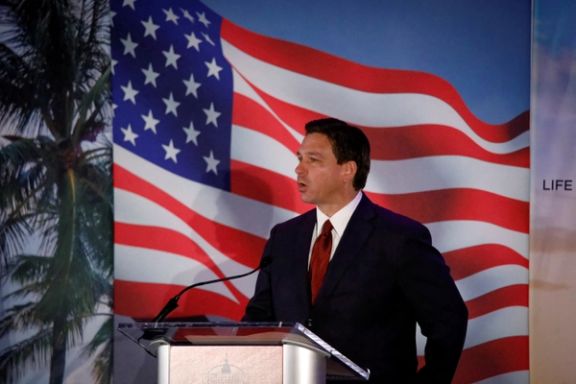
Republican presidential candidate Ron DeSantis has criticized the Biden administration over its Iran policy, vowing a stronger posture against the clerical regime.
DeSantis, presumed to be Donald Trump’s main competitor on the path to the 2024 Republican nomination, told Israel Hayom Thursday that the current administration is “more interested in kowtowing to Iran than standing by our allies,” describing US-Israel relationship under President Joe Biden as “disgraceful.”
“My view as president would be we're going to have a really strong US-Israel relationship,” said DeSantis, who announced his presidential bid in May and polls show that he currently has the best shot at beating Trump in the fight over his party's nomination.
Accusing the administration of prioritizing Iran over Israel, he said “You can't try to cozy up to them (Iranians). "So we would be supportive of Israel's predicament. And obviously, we would have a much stronger posture against Iran."
The Biden administration is reportedly discussing an unwritten deal with Iran to release money in exchange for limited concessions by Tehran.
“The whole Obama-Khamenei deal [2015 JCPOA nuclear agreement] was a total disaster and Biden is trying to resuscitate,” he said, highlighting that concessions to the Iranian regime means more money used to foment terrorism.
He vowed to squeeze the Islamic Republic so that the regime understands that pursuit of terrorism “is going to be bad for them economically, diplomatically, and potentially even militarily. “That is the way the only thing that the mullahs understand – strength," he underlined.
“Iran represents an existential threat to the State of Israel. Now they would love to wipe Israel off the map. They would love to wipe out America,” he added.
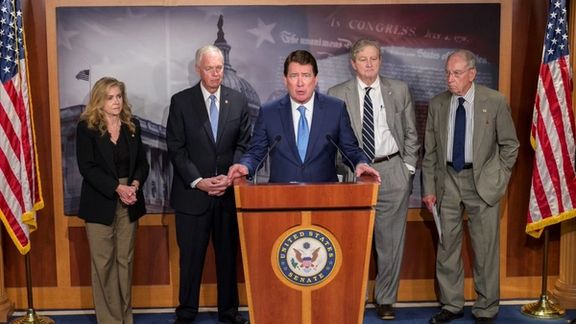
Reports on a possible unwritten deal between Washington and the Iranian regime has led to multiple Congressional initiatives to ensure legislative oversight.
On Thursday 33 US senators joined to introduce the Iran Sanctions Relief Review Act (ISRRA – S.488) to “make it abundantly clear to the Biden Administration that any agreement made with Iran that involves sanctions relief must be submitted for Congressional review,” said Senator Bill Hagerty (R-Tenn) who leads the effort.
When in 2015 the JCPOA Iran nuclear deal with Iran was concluded, the Obama administration seeing serious opposition in Congress decided not to make it a treaty requiring Senate approval. As a tactic to reduce opposition, Obama agreed to the Iran Nuclear Agreement Review ACT (INARA) to allow Congress to oversee future dealings with Tehran, especially any reduction in sanctions.
As all signs point to indirect and even direct talks with the Islamic Republic emerge, many in Congress fear that the Biden administration is moving toward releasing Iran’s frozen funds in countries such as Iraq and South Korea, and possibly even sanctions in return for an Iranian pledge not to enrich uranium beyond 60 percent. Many lawmakers regard such a deal as harmful because Iran has already stockpiled enough enriched uranium to be able to quickly produce weapons-grade material if it decides to produce for nuclear weapons.
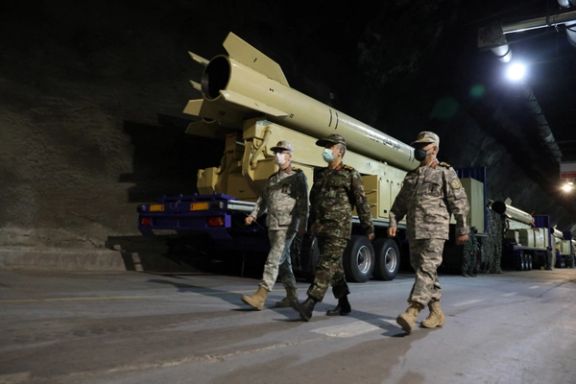
The Washington Free Beacon also reported on Thursday that Republicans in the House of Representatives are preparing to subpoena top Biden administration officials over the secret talks with Iran. The effort is led by the Republican Study Committee, the largest conservative caucus in the US Congress. The group intends to subpoena Iran envoy Robert Malley and White House national security aide Brett McGurk, both seen as key players in ongoing secret talks with the Islamic Republic.
At same time, more than 200 prominent Iranian Americans have written to Rep. Michael McCaul, Chairman of the House Foreign Affairs Committee asking him to subpoena US special envoy for Iran Robert Malley, who is deeply distrusted by Iranian activists and others opposed to the Iranian regime.
“We therefore implore you to subpoena Mr. Malley to provide, under oath and in a public hearing, a rundown of what has been agreed upon with the regime,” the letter asked Rep. McCaul, and added, “We consider access to and knowledge of this information to be unalienable right of the American people and our community, as our friends and families inside Iran suffer under the tyranny and brutality of the Islamic Republic regime.”
Some prominent signatories were; Reza Behrouz, physician and Professor at the University of Texas ; Yass Alizadeh, Assistant Professor of Persian language and literature at New York University; Atlanta-based attorney Sasan Nematbakhsh; DC-based legal scholar Shima Bozorgi; Amin Sophiamehr, philosophy instructor from Indiana University and Sara Eshaghi of the California-based group, “Action for Iran.”
This week, a bipartisan group of 26 senators sent a letter to the White House expressing concern over reports that the administration is trying to reach a limited deal with Iran without Congressional oversight.
“It is imperative today that we strengthen our efforts to deter Iran from achieving nuclear weapons capability. We must make Iran understand, in no uncertain terms, that further advances in its nuclear program will be met with unified international action,” the 26 senators wrote to Biden.
“It is crucial for your administration to remain aligned with Congressional efforts related to Iran’s nuclear program and not agree to a pact that fails to achieve our nation’s critical interests,” the letter said.

The intelligence agencies of European countries determined that the Islamic Republic of Iran sought nuclear weapons technology during 2022.
The agencies published their findings during the first six months of 2023, according to the Middle East Media Research Institute (MEMRI), which first located and translated the damning material asserting Iran’s regime sought weapons of mass destruction (WMD) technology.
According to the report of the Netherlands General and Intelligence Security Service (AVID), “The AIVD and MIVD [ Military Intelligence] succeeded a number of times in preventing Russia and Iran from acquiring Dutch knowledge or technology for their nuclear weapons programs."
The Dutch intelligence document did not disclose the nature of the knowledge and technology that the clerical regime sought to obtain.
The report noted that the Dutch intelligence establishment “succeeded a number of times in preventing Russia and Iran, among others, from procuring materials, technology, and (applied) scientific knowledge in the Netherlands that they could have used for their nuclear weapons programs. It concerned, among other things, high-tech products that play an important role in the modernization of weapons of mass destruction. The AIVD has issued official communications in this regard to the government and to financial institutions."
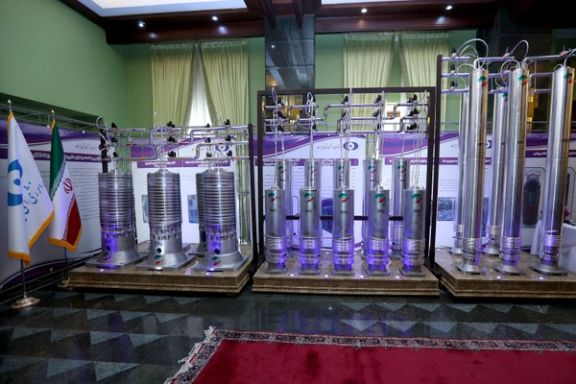
The Netherlands intelligence agencies also covered the Islamic Republic’s biological weapons program. "In 2022, the counter-proliferation unit continued its investigation into the use of chemical weapons in Syria. The focus was on the current situation, but it also examined which generals of the Syrian regime are responsible for poison gas attacks in the past. In 2022, the unit also continued research into biological weapons programs of several countries of concern, including Russia and Iran. Additional focus was on recent developments in biotechnology and its possible consequences for the development of new types of biological weapons, “wrote the intelligence officials.
Since the 2000s there have been numerous reports of Iran trying to procure nuclear or missile technology from Western and other sources, and many individuals and entities have been sanctioned by the United States and its allies for assisting Iran’s covert operations.
But the Iranian regime and government-controlled media have rarely reacted directly to such accusations. On the contrary, Iranian officials often claim that their nuclear and missile programs are “entirely homegrown” and insist that they have made progress “despite sanctions.”
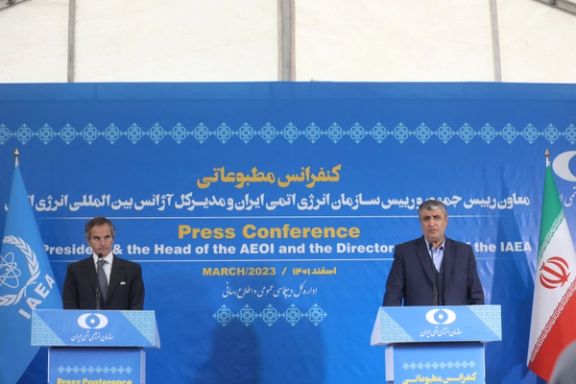
Mohammad Eslami the head of Iran’s nuclear program claimed in March that “We are a nuclear country without any foreign help.”
Behruz Kamalvandi, the nuclear program spokesman said in May that any attack or other punitive measures against Iran’s “peaceful” nuclear technology is meaningless because the country is totally self-sufficient. He was addressing a gathering of Iranian senior diplomats abroad.
However, it is widely believed that Israeli secret services deeply penetrated Iran’s nuclear program and were able to explode the main uranium enrichment site in Natanz twice; in 2020 and 2021. Some observers speculated that Israel could have smuggled in the explosives by rigging components that Iran illicitly imported from abroad.
The German media outlet Bild reported, in 2019, the German engineering company The Krempel Group located in the southern city of Stuttgart sold electronic press boards to Iranian companies that were used in the production of rockets. Forces under the control of Syrian dictator Bashar al-Assad fired Iranian regime-produced chemical missiles containing Krempel material, resulting in the severe gassing of 21 adults and children.
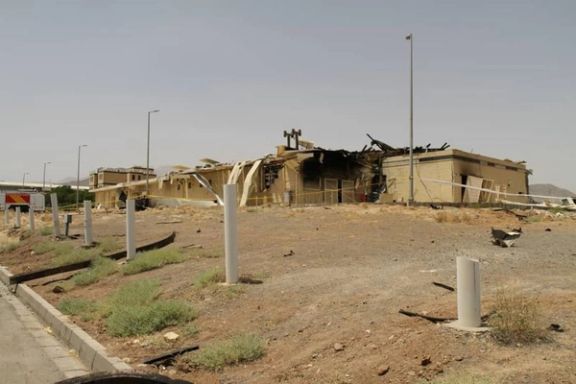
The Dutch intelligence report said Netherlands intelligence “prevented an Iranian scientist, who was associated with a sanctioned institute, to acquire relevant (applied) knowledge at a Dutch university of technology. That knowledge could have been of use in Iran's nuclear weapons program. If necessary, the AIVD will also investigate new developments in the field of weapons of mass destruction."
The Swedish Security Service said in its 2022-2023 situational assessment "Iran engages in industrial espionage, which is mainly aimed at the Swedish high-tech industry and Swedish products that can be used in nuclear weapons program.”
According to the Swedish intelligence report, "Swedish technology as products with dual uses and critical cutting-edge products for both civilian and military use is of interest to Iran. Iran procures both technology and knowledge through illegal methods, and develops its own ability through Swedish universities and research institutions."
The Swedish intelligence officials added "Iran – a tangible security threat... conducts intelligence activities and security-threatening activities in and against Sweden and Swedish interests in the form of intelligence gathering, influencing opposition parties and through procurement activities. The Iranian intelligence services have also for a long time carried out attacks against people [in Sweden] who are perceived to threaten the stability of the Iranian regime."
The Swedish Security Service "Authoritarian states strengthen their positions.The threat from foreign power is high. Russia, but also China and Iran, still constitute the largest security threats to Sweden. Authoritarian states have in the latest the years become increasingly offensive in their actions. They act aggressively and use all of society's resources.”
Germany’s Federal Office for the Protection of the Constitution (BfV) released its national intelligence report on June 20. The report stated: "The authorities for the protection of the constitution were able to find, in 2022, a consistently high number of indications of proliferation relevant procurement attempts by Iran for its nuclear program."
The German national intelligence report defines "Proliferation," as "The activities of foreign powers also include procuring products and knowledge for the production of weapons of mass destruction, their delivery systems, other armaments or elements of new weapon systems."
Germany’s sixteen states release individual intelligence reports. The German state of Rheinland-Pfalz, said in its June 5 report: "An important area of responsibility of the Office for the Protection of the Constitution is the reconnaissance and prevention of attempts by so-called critical states which owned weapons of mass destruction and the necessary carrier technology as well as the access to the relevant know-how. Because they themselves in their development and production are often not in a position [they would like to be in], these states try to illegally obtain the necessary knowledge, products and goods using secret service methods. Such procurement attempts have been going on for years, most of all by Iran.”
The state of Bavaria said in its April intelligence report"[t]he procurement structures of other proliferation relevant risk states like China, Iran, North Korea, Pakistan, and Syria act in the same way [as Russia] and are moving ahead greatly with their conspiratorial procurement activities."
The intelligence agency for Germany’s most populous state, Nordrhein-Westfalen wrote in its April report in the section covering proliferation of biological or chemical weapons of mass destruction (ABC weapons)"At-risk states in this connection appear to be mainly Iran, Pakistan, Syria, and Russia."
The Nordrhein-Westfalen agency report added "In the area of proliferation, the sanctions imposed on Russia lead to covert, intelligence-led evasion and purchasing efforts. Iran also continues to seek technology for its programs."
(Iran International’s Mardo Soghom contributed to this report.)